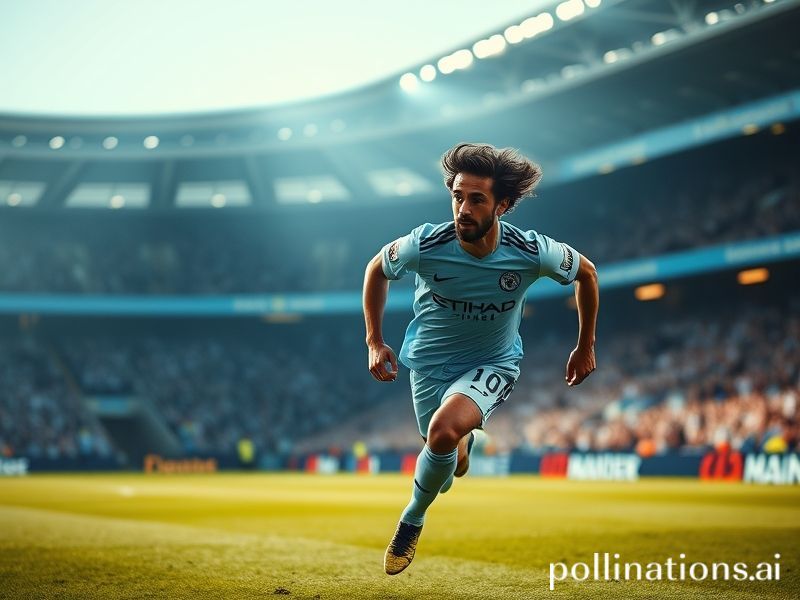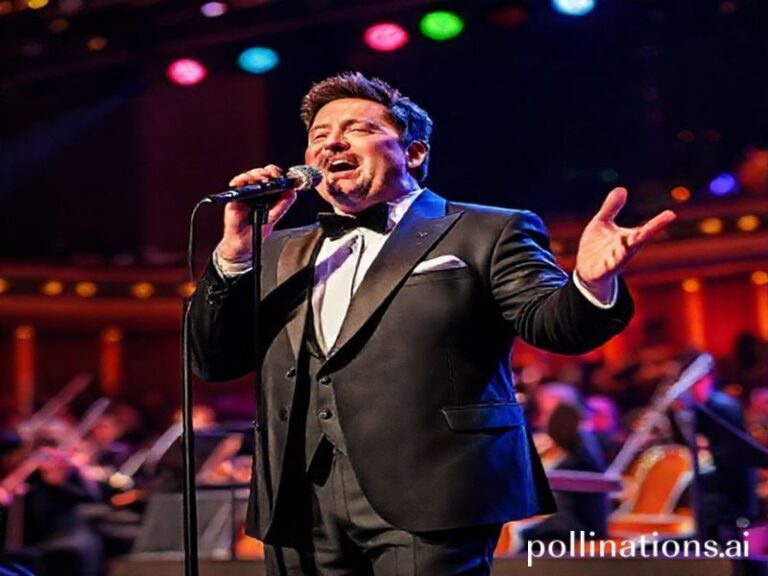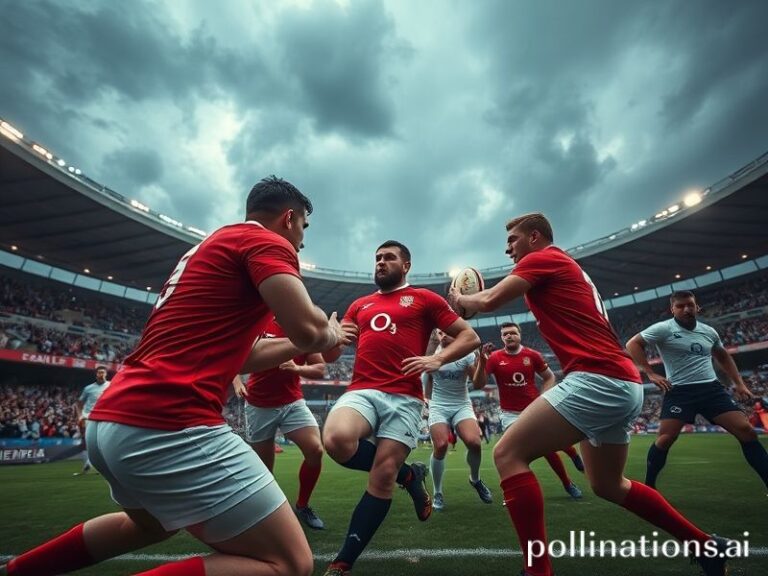Bernardo Silva: Portugal’s Diplomat in Boots and the Quiet Art of Global Domination
Bernardo Silva is the kind of footballer who makes you wonder whether the gods ever actually left Olympus or just relocated to a boutique gym in Monte Carlo. At 29, the Portuguese midfielder has become a quiet but persistent reminder that elegance can still survive in an era when the sport is mostly a high-frequency trading desk with shin pads. To watch Silva play is to witness a man who treats the midfield like a well-stocked diplomatic cocktail party: everyone gets a touch, nobody leaves insulted, and somehow the host still ends up with the bill—in this case, three Premier League titles, a Champions League final, and 85 caps for a country that once specialized in maritime disasters.
Internationally, Silva is less a talisman than a thermometer. When Portugal win, Bernardo is the mercury rising—subtle, precise, and silently announcing that the fever is back. When they lose, he is still there, politely handing you the thermometer with a shrug that translates roughly to “What did you expect? We’re a country that once traded nutmeg for half of Brazil.” His presence in the Seleção is a geopolitical statement in miniature: a small nation insisting on relevance by exporting technical sophistication the way Switzerland exports discreet banking and questionable neutrality.
This summer’s European Championship will, of course, double as an audition for whatever fresh geopolitical metaphor the commentariat prefers. Should Portugal stumble, Bernardo will be blamed for not being a “big-game player,” which is shorthand for “not scoring a hat-trick while rescuing a cat from a burning building.” If they triumph, the same pundits will hail him as proof that the Iberian peninsula remains capable of producing more than sunshine and sovereign debt crises. Either way, the narrative will be wrapped in the usual clichés about “small nations dreaming big,” as if Luxembourg might suddenly wake up and decide it’s Brazil.
Silva’s club career arc is equally instructive about global capital flows. From Benfica’s academy (state-subsidized optimism) to Monaco (tax-haven finishing school) to Manchester City (Emirati soft-power project), Bernardo has essentially traced the flight path of a Gulfstream jet owned by someone who definitely doesn’t pay UK tax. At City, he is the polite vandal in Pep Guardiola’s beautifully choreographed riot, the guy who can thread a pass through a keyhole while calculating the exact amount of sarcasm required in his post-match interview. His rumored annual salary—roughly the GDP of a mid-tier Pacific island—hasn’t noticeably increased his enthusiasm for interviews, possibly because he realizes that every microphone is just another opportunity for someone to ask whether he’s “the next Messi,” a question that ranks somewhere between “Do you believe in love?” and “Have you tried turning it off and on again?” on the scale of existential pointlessness.
Off the pitch, Silva’s Twitter feed is a masterclass in mild sarcasm and accidental controversy—he once compared teammate Benjamin Mendy to a black cartoon character and was promptly dragged before the FA’s inquisition, proving that even millionaires can still fail the internet’s daily purity test. The episode ended with a one-match ban, a mandatory re-education course, and the quiet understanding that modern athletes are expected to be both gladiators and HR departments. Bernardo accepted the judgment with the weary resignation of a man who has read the terms and conditions and still clicked “Agree.”
In the broader scheme of things, Silva is a reminder that globalization doesn’t always arrive with aircraft carriers or trade wars; sometimes it shows up wearing fluorescent boots and speaking Portuguese with a faint Mancunian accent. He is the human equivalent of a perfectly weighted through-ball: seemingly effortless, actually the product of brutal discipline, and capable of splitting entire defensive ideologies before they even know they’ve been flanked. Whether that amounts to a lasting legacy or merely another entry in the endless spreadsheet of elite midfielders depends, as always, on who’s keeping score—and whether the Wi-Fi holds long enough to update the narrative.







